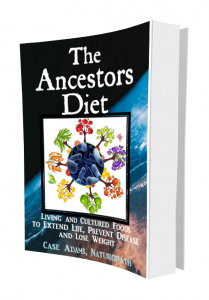Low-Carb Diets Signficantly Increase Risk of Early Death
Low-carb diets have become extremely popular over the past decade, with the advent of the Adkins diet and the Keto diet. But are low-carbohydrate diets safe?
In this article
Harvard scientists study low-carb diet
Research from the Harvard School of Public Health has found that low-carbohydrate, high-animal-protein diets significantly increase the risk of early death.
The researchers followed 85,168 women between 34 and 59 years old for 26 years, and 44,548 men between 40 and 75 years old for 20 years. At the beginning of the study, none had cancer, heart disease, or diabetes.
During the study there were 12,555 deaths. Of these, 2,458 were heart disease, and 5,780 were cancer among the women, and 2,746 were heart disease and 2,960 were cancer among the men.
Those eating low-carbohydrate, high-animal protein diets were 23% more likely to die from any cause, and 28% more likely to die from cancer. The Low-carb animal protein dieters were also 14% more likely to die from heart disease.
Diets high in veggie protein had different outcome
However, those eating a diet high in vegetable-protein and low in carbohydrates had a 20% lower risk of early death. But because so many low-carbohydrate eaters utilize animal proteins, the overall total low-carbohydrate dieters – including those using animal protein and vegetable protein – had an increased mortality rate of 12% over those not using the low-carb diet. This of course means that the low-carb animal protein dieters had an even more significant risk of early death.
“A low-carbohydrate diet based on animal sources was associated with higher all-cause mortality in both men and women, whereas a vegetable-based low-carbohydrate diet was associated with lower all-cause and cardiovascular disease mortality rates,” concluded the Harvard researchers.
Why are low-carb diets so bad?
Low-carbohydrate diets that focus on animal proteins have increased levels of saturated fats, and run the risk of higher levels of synthetic hormones and antibiotics used to fatten up commercial livestock. The livestock bioaccumulates these toxins within their fat cells.
Does this mean that grassfed beef is the answer? Beef still bioaccumulate toxins in their fat cells – whatever toxins are in the air and in the ground. These toxins then accumulate in our bodies as a result.
The vegetable protein alternative
Many low-carb dieters do not realize that vegetable-source proteins are a viable alternative. According to a Harvard School of Public Health review of the research:
“Vegetable sources of protein, such as beans, nuts, and whole grains, are excellent choices, and they offer healthy fiber, vitamins, and minerals. Nuts are also a great source of healthy fat.”
Diets high in plant-based proteins also provide an array of plant nutrients, which include a myriad of vitamins, minerals and plant polyphenols. Plant-based diets also reduce heart disease and cancer risk according to other research.
REFERENCES:
Clifton PM. Protein and coronary heart disease: the role of different protein sources. Curr Atheroscler Rep. 2011 Dec;13(6):493-8.
Fung TT, van Dam RM, Hankinson SE, Stampfer M, Willett WC, Hu FB. Low-carbohydrate diets and mortality: two cohort studies. Ann Intern Med. 2010 Sep 7;153(5):289-98.
Protein: Moving Closer to Center Stage. The Nutrition Source. Harvard School of Public Health. Acc. Nov. 10, 2011. Harvard.edu.
















